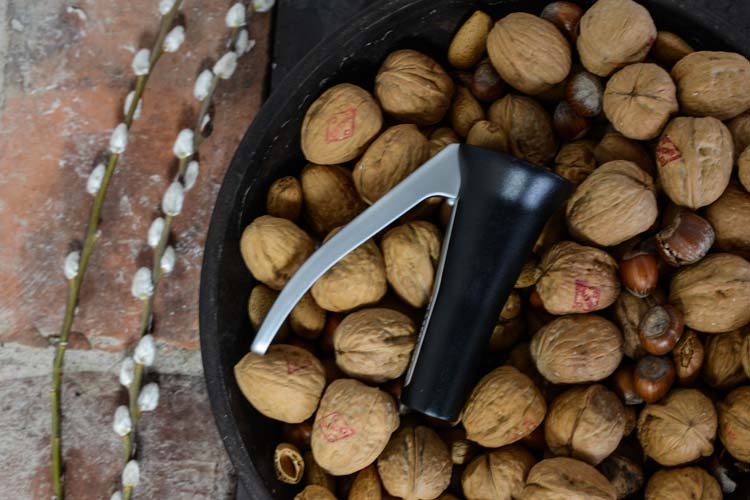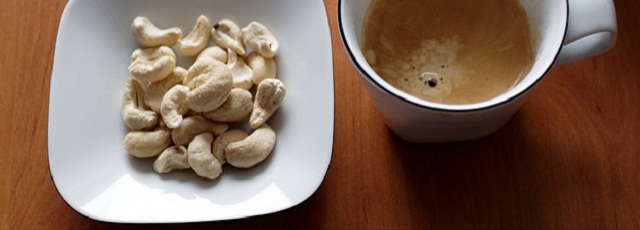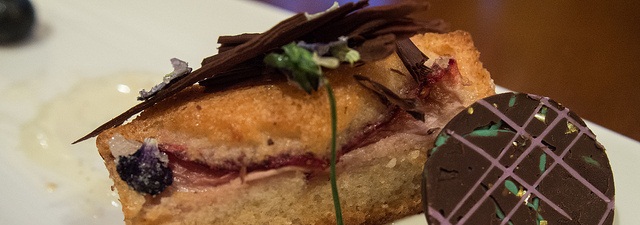Cashew is one of those super versatile ingredients that have a creamy texture and sweet taste and can be used in preparing spicy curries or yummy desserts. Cashews are very handy when you are in a need of a quick snack to boost your energy levels on the go. They are rich in dietary minerals, zinc, selenium, antioxidants, and vitamins that are much needed for the proper functioning of your body.
The meaning of “Cashew” can be traced all the way back to the Tupian word acajú which is translated as “nut that produces itself”. Portuguese later borrowed it, transforming it into caju. It is considered that this delicious nut originated in Brazil and later was made known in India and Africa by Portuguese traders. Now some of the major cashew producers include Vietnam, Nigeria, India, Cote d’Ivoire and Benin.
The cashew tree is an evergreen tree and the fruit that it provides is known as an accessory fruit or a false fruit. The pear-like structure called hypocarpium is yellow, edible one and has a very sweet taste. It is also called cashew apple or marañón in Central America. The true fruit that the tree grows is actually attached to the bottom of the cashew apple and represents a kidney-shaped drupe. Inside the drupe, there is a seed or a nut. The shell around it contains anacardic acid that is a chemical responsible for allergic reactions

The Drosselmeyer Nutcracker. Visit our Shop.
Nutritional value
In 100 grams (raw cashew) there are 553 Calories
Cashews are incredibly rich in copper, phosphorus, zinc, manganese, magnesium, and iron. A 100 g of these nuts can give you up to 67% of the daily needed dose of total fats for example.
Around the world
In India, cashews are a required ingredient that must be in every house. They like to add these delicate nuts to everything from sweets to curry. Same goes for Goa where cashew is an essential part of the native cuisine. A sweet dessert – turrones de casuy is made from cashew and white wafers in Pampanga. Thai and Chinese dishes often contain whole cashew nuts too. In Mozambique, a cake is made with the use of powdered cashews and mashed potatoes – bolo poana. Panama is famous for their dulce de marañón, containing cooked cashews. There is also oil produced by the cashew often used around the world.
Health Benefits
1.Cashew helps your heart
Cashew, like many other nuts, contains monounsaturated and polyunsaturated fats. They are very helpful in lowering your low-density lipoprotein cholesterol also known as “bad” cholesterol. In addition to that, they consist of oleic acid that is known to lower the chance of heart attacks. A study of the American Society of Nutrition concluded that cashews: “when substituted for a high-carbohydrate snack, may be a simple dietary strategy to help manage total cholesterol and LDL cholesterol.”
2.Cashew helps lower your blood pressure
Rich in magnesium, these sweet nuts have the ability to positively influence your blood pressure. According to Dr. Carolyn Dean, author of “The Magnesium Miracle”, the heart has the highest magnesium requirement of all other organs in the human body. Hence without it, the heart does not function properly. In 100g of cashew, there are 292mg of magnesium.
3.Cashew can help the fight against cancer
According to Dr. Bahram Tadayyon’s book – “The Miracle of Nuts, Seeds, and Grains”, cashews contain Proanthocyanidins that has the ability to diminish tumor cells and stop their development. Also, the copper that they contain fights free cancer-causing radicals.
4. Cashew gives you more energy
Since they are super high in calories – 553 calories for just 100 g, these nuts can really help you boost your strength. They are also a good source of proteins. A great way to have them as a snack on the way is to prepare a cashew energy balls – just put 200g of cashews, 200 g of dates and 50g of oats together in a food processor. Roll the mixture into balls and put in the fridge and they are ready for consumption.
4. Cashew can help you protect your vision
Cashews have zeaxanthin – a flavonoid antioxidant, which when consumed regularly can slow down the muscular deterioration in eyes and cataract. This pigment is also absorbed by the retina in order to protect it from UV rays.
6. Cashew is source of magnesium for the bones
Magnesium is a very important mineral in case you want to have strong bones and since it is one of the main ones in cashews – this nut is perfect for the purpose.
7. Cashew can help you lose weight
Cashews are considered a “fatty” nut, but most of the fats that it contains are the healthy monounsaturated kind. According to a study by the British Journal of Nutrition – by interchanging saturated with unsaturated fats we help our body to an overall weight loss. It is a good idea to have a limited portion of cashews (in 16 to 18 cashews there are 163 calories for example) plus a low-calories snack as a fast meal option, keeping your diet in check. Plus most nuts contain Omega 3 fatty acids that are known to boost your metabolism.
8.Cashew can help in case of anemia
If you suffer from anemia cashews can help as they contain 2 mg of iron in a 30 g serving (Required daily intake of iron is: 14.8 mg for women and 8.7 mg for men). The nuts consumption can be substituted with cashew butter that is even denser hence richer in this mineral. But keep in mind that it should be consumed in addition to other meals like a salad with pepper and tomatoes as the iron in cashew nuts is not easily absorbed. Though there are no conclusive tests, it is suggested that soaking the nut can help in this regard.
9.Cashew is good for your skin
The oil from this nut is super rich in zinc, magnesium, and phosphorus – all vitamins that our skin loves and needs in order to stay fresh and plump.
10. Cashew helps in the care for your hair
The copper these kernels contain produces melanin – essential for a shiny and healthy hair. Adding cashew oil to your hair rituals can enrich the hair color. Furthermore, it will give a smooth and lushes texture to your hair due to the oleic acid cashew has.
Image Copyright: Daniel Panev, License: CC BY-SA 2.0



